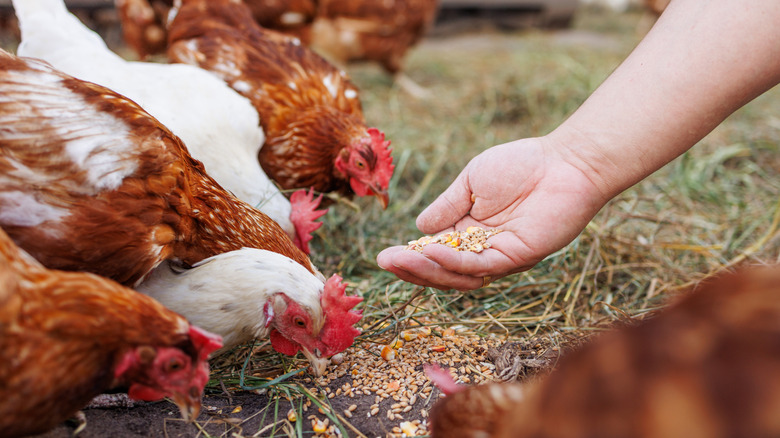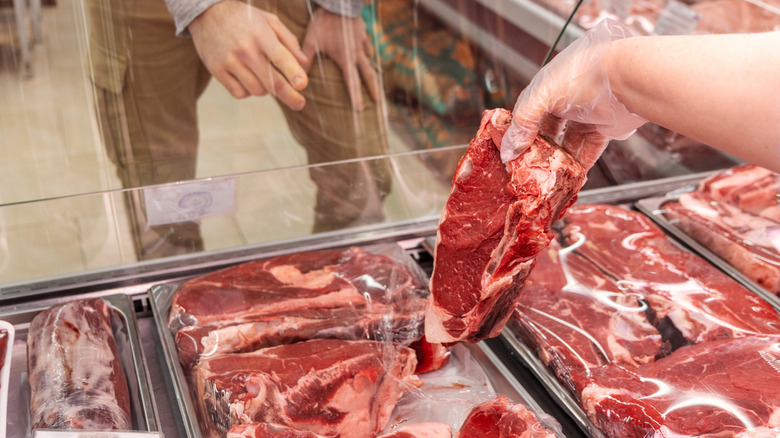How To Tell If The Meat You're Buying Has Been Ethically Sourced
Choosing ethically sourced meat seems easy enough, until you realize it's a multi-faceted decision that must factor in animal welfare, environmental impact, and support for better farming systems. When facing a crowded meat case lined with labels like "free-range" and "pasture-raised," it's tough to determine what truly counts as ethical. Luckily, Koji Fujioka, butchery manager at The Local Butcher Shop in Berkeley, California, is here to help you decode packaging so your meat actually aligns with your values.
When it comes to labels, Fujioka told The Takeout, "It can be difficult to know for sure. While there are some limited federal regulations on animal treatment and welfare, I think we are far from any certifications (like USDA Organic) that would help the public identify meat products from ethical sources." Certifications are usually stricter and more transparent than vague claims like "natural" or "hormone-free." These organizations evaluate farms based on animal treatment, environmental practices, and worker welfare. "There are some third-party certifications out there, such as from the Global Animal Partnership and National Pork Board, which farmers can pay for," Fujioka acknowledges. "The costs for these audits, however, can be prohibitive for smaller operations."
As a consumer, it's important to understand what "organic" food labels really mean, and how these certifications work — and what they leave out. To earn a certification, producers must pass routine inspections, maintain detailed records, and sometimes make expensive infrastructure upgrades to comply with standards. It's no easy task for a small family farm.
It takes a little extra work to shop ethically
The next time you visit your butcher shop or farmers market, remember these questions from Koji Fujioka. "Ask how the animal was raised," he suggests. "How much space was allowed for the animal to live? What type of land were the animals raised on? Pasture, dirt beds, concrete (hopefully not)? What was the animal fed?" Maybe also ask yourself, can I still eat meat and care about climate change?
Personal relationships with your purveyor can often reveal more than a label. A small local farm without any official certifications may still be raising animals entirely on pasture, implementing rotational grazing, and treating their animals with care and respect. But unless you get to know the farmer, you may not uncover this information. Ethical sourcing also often goes hand-in-hand with regenerative agriculture, which focuses on soil health, biodiversity, and humane treatment of animals. Check out websites like LocalHarvest or EatWild to connect with these types of producers.
"Responsible operations will advocate for themselves and share the practices that they are proud of," Fujioka adds. "Don't necessarily rely on the vendor, market, or butcher shop to provide all of the information. You'll have to do a little homework." These types of farmers are usually open about the animals' living conditions, slaughter methods, and access to pasture. Ethically sourced meat should reflect respect for everyone: the animals, the land, and the people producing it.

